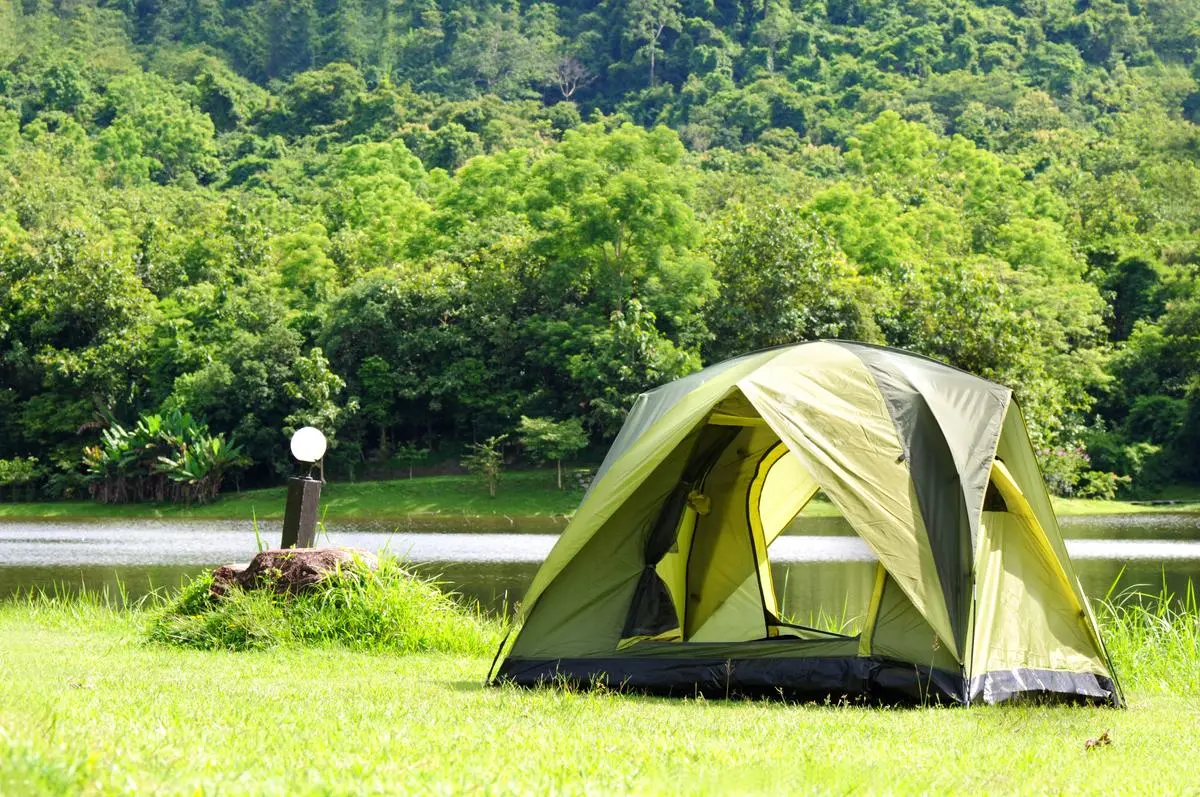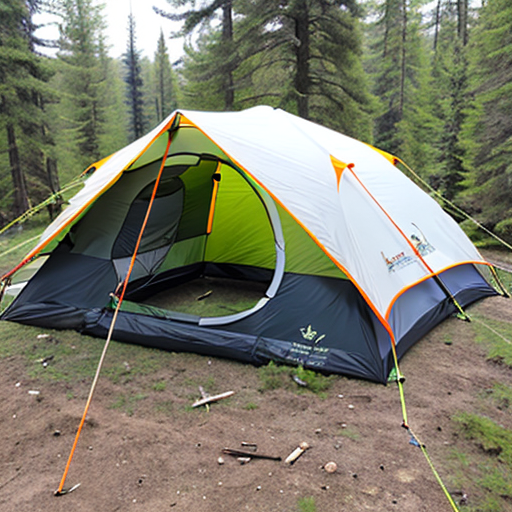5 Best Cabin Tents For You In 2023
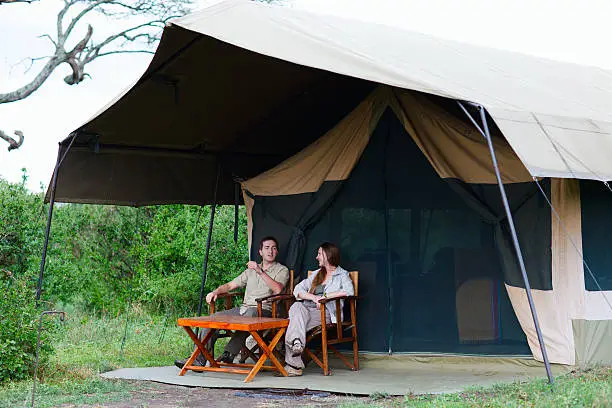
Camping is an adventure that brings us closer to nature, offering a break from the hustle and bustle of everyday life. The right camping gear can make the difference between a memorable experience and a challenging one. One of the most crucial pieces of camping equipment is the tent, your home away from home. Among the various types of tents available, cabin tents and lightweight tents have gained popularity for their unique features and benefits.
But the question arises, “Are cabin tents good?” This article aims to answer this question by delving into the world of cabin tents, exploring their pros and cons, and comparing them with other types of tents. Whether you’re a seasoned camper or a beginner, this comprehensive guide will provide valuable insights to help you make an informed decision about cabin tents.
Contents
What are Cabin Tents?
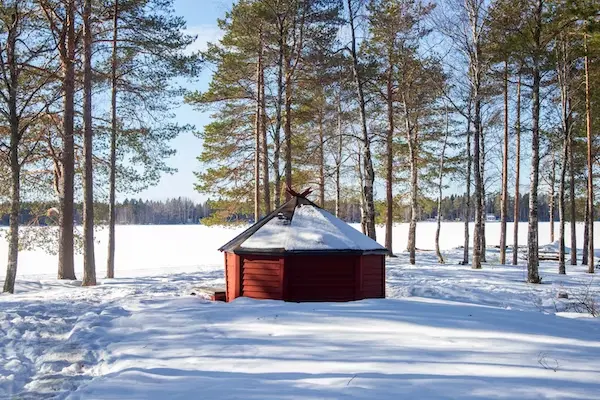
Cabin tents, as the name suggests, are designed to resemble a cabin. They are characterized by their near-vertical walls and high ceilings, which create a spacious interior that feels more like a room than a traditional tent. This structure allows for more headroom and walking space, making cabin tents an excellent choice for families or groups of campers who value comfort and roominess.
There are different types of cabin tents available in the market, each with its unique features. Traditional cabin tents, for instance, are known for their sturdy construction and spacious interiors, but they can be quite heavy and may require more time and effort to set up. On the other hand, instant cabin tents, which have pre-attached poles, can be set up in a matter of minutes, offering convenience and saving valuable time during your camping trip. Tents for rain also have their distinct advantages.
Whether you opt for a traditional or an instant cabin tent, it’s essential to consider your specific camping needs and preferences. In the following sections, we will delve deeper into the benefits and drawbacks of cabin tents to help you make an informed decision.
Benefits of Cabin Tents
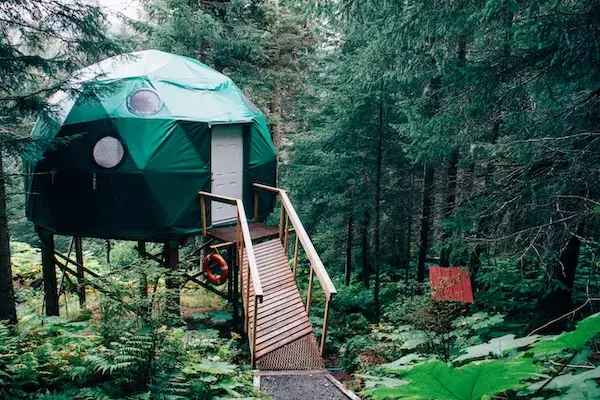
Cabin tents offer several advantages that make them a popular choice among campers. Here are some of the key benefits:
- Spaciousness and Comfort: Thanks to their vertical walls and high ceilings, cabin tents provide ample space for campers to move around comfortably. They are ideal for families or groups, as they can accommodate multiple people, camping gear, and even furniture like camping chairs or air mattresses.
- Room Dividers for Privacy: Many cabin tents come with room dividers, allowing you to create separate sleeping or living areas within the tent. This feature is particularly useful for families or groups who want to maintain some level of privacy during their camping trip.
- Vertical Walls for Maximum Space Usage: Unlike dome or tunnel tents, which taper towards the top, cabin tents have near-vertical walls, allowing campers to utilize the entire space effectively. This means you can place your gear or sleeping bags closer to the walls without feeling cramped.
- Ease of Setup (Especially for Instant Cabin Tents): While traditional cabin tents may require some time and effort to set up, instant cabin tents are designed for convenience. With pre-attached poles and simplified setup processes, you can have your tent ready in a matter of minutes, leaving more time for you to enjoy your camping experience.
While cabin tents offer numerous benefits, they also have certain drawbacks that you should consider. In the next section, we will discuss some potential challenges you might face with cabin tents.
Drawbacks of Cabin Tents
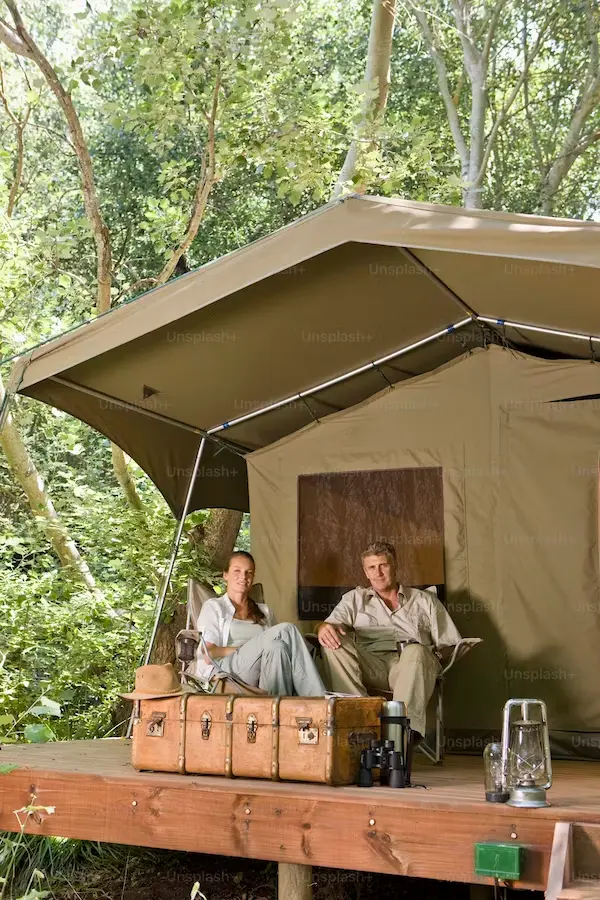
While cabin tents offer many advantages, they also come with a few potential drawbacks that are important to consider:
- Wind Resistance: Due to their high profile and vertical walls, cabin tents can be less stable and more susceptible to wind compared to lower-profile tents like dome or tunnel tents. It’s crucial to secure your tent properly, especially in windy conditions.
- Weight and Portability: Cabin tents, particularly those made with sturdy materials and poles, can be quite heavy. This might not be an issue if you’re car camping, but for backpackers or those who need to carry their gear over long distances, a lighter tent might be more suitable.
- Durability Concerns: While cabin tents are generally well-constructed, their large size and complex structure can sometimes lead to durability issues. For example, the poles and zippers may be prone to damage if not handled with care. Regular maintenance and proper use can help prolong the life of your tent.
Despite these potential drawbacks, many campers find that the benefits of cabin tents outweigh the challenges. In the next section, we’ll take a closer look at a specific type of cabin tent: the instant cabin tent.
Are Instant Cabin Tents Worth It?
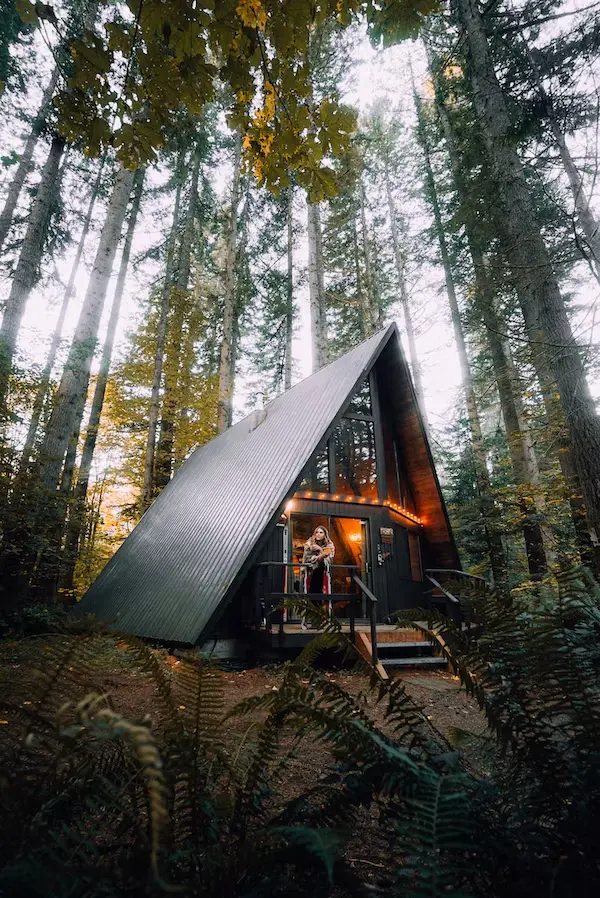
Instant cabin tents are a subcategory of cabin tents that are designed for quick and easy setup. They come with pre-attached poles and a simplified assembly process, allowing you to set up your tent in a matter of minutes. But are they worth the investment? Let’s weigh the pros and cons:
Pros of Instant Cabin Tents
- Quick Setup: The main advantage of instant cabin tents is their quick and easy setup. With pre-attached poles and fewer components to assemble, you can have your tent ready in no time. This is particularly beneficial if you’re setting up camp in the dark or in adverse weather conditions.
- Convenience: Instant cabin tents eliminate the hassle and confusion that often come with setting up a traditional tent. This makes them a great choice for beginners or those who prefer a fuss-free camping experience.
Cons of Instant Cabin Tents
- Potential Durability Issues: While instant cabin tents offer convenience, their complex mechanisms can sometimes lead to durability issues. The pre-attached poles, for instance, may be prone to damage if not handled with care.
- Price: Instant cabin tents are generally more expensive than traditional cabin tents due to their advanced features. It’s important to consider whether the convenience and time saved are worth the extra cost.
In conclusion, instant cabin tents can be a great investment if you value convenience and quick setup. However, like any product, they come with their own set of pros and cons that should be considered before making a purchase.
Cabin Tents vs. Other Tents
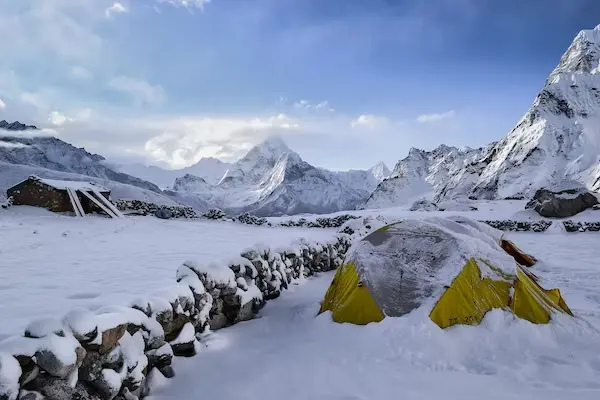
When choosing a tent for your camping trip, it’s important to understand how different types of tents compare. Here’s how cabin tents stack up against other popular tent types:
- Cabin Tents vs. Dome Tents: Dome tents are characterized by their curved, dome-like shape. They are generally lighter and more wind-resistant than cabin tents, making them a good choice for backpacking or camping in windy conditions. However, they offer less interior space and headroom compared to cabin tents.
- Cabin Tents vs. Tunnel Tents: Tunnel tents, with their series of curved poles creating a tunnel-like shape, offer a good balance of weight, space, and wind resistance. They can be more stable than cabin tents in windy conditions, but setting them up can be more complex. Cabin tents, on the other hand, offer more vertical space and are generally easier to set up, especially the instant models.
- Cabin Tents vs. Backpacking Tents: Backpacking tents are designed to be lightweight and compact for easy transport on long hikes. They are typically smaller and less spacious than cabin tents. If portability and weight are your main concerns, a backpacking tent might be a better choice. However, if you’re car camping or don’t need to carry your tent far, a cabin tent’s extra space and comfort could be a major advantage. For those camping in colder conditions, considering tent heaters might be essential.
In the end, the best tent for you depends on your specific needs and camping conditions. In the next section, we’ll provide some tips on choosing the right cabin tent.
Buying Guide
Selecting the right cabin tent involves considering several factors. Here are some key aspects to keep in mind:
- Size: Consider how many people will be sleeping in the tent and how much gear you’ll have. Remember, it’s often a good idea to choose a tent that’s rated for one or two people more than you’ll have to ensure everyone has enough space.
- Material: Look for a tent made from durable materials that can withstand the elements. Polyester is a common choice for the tent body, while polyethylene is often used for the floor due to its water-resistant properties.
- Ease of Setup: If you want to start your camping trip without the hassle of a complicated setup process, consider an instant cabin tent. However, be aware that these models can sometimes be less durable than traditional tents.
- Features: Consider what features are important to you. Do you want a tent with room dividers for privacy? What about an awning for extra shade? Make a list of your must-have features before you start shopping.
- Price: Cabin tents can range in price from budget-friendly to quite expensive. Determine your budget before you start shopping, and remember that while a higher-priced tent may have more features or be more durable, it doesn’t necessarily mean it’s the best choice for your needs.
A Quick View
This table provides a quick overview of the main advantages and disadvantages of cabin tents. It’s important to consider these factors along with your specific camping needs when choosing a tent.
| Tent Model | Notable Features | Advantages | Drawbacks |
| Coleman Compact Cabin Tent | Double-layered fabric, fortified corners, innovative ventilation system, built-in storage solutions, compact design | 90% sunlight filtering, convenient carry case, reduces internal temperature by ~10% | Restricted height (6 feet), single door |
| Core Instant Cabin Tent | Modifiable ground vent, cabin divider, heat-sealed seams | Comfortably houses two queen-size mattresses, effectively keeps water at bay, large mesh windows | Requires hand washing, accommodates fewer people with air mattresses |
| Browning Camping Big Horn Tent | High ceiling (7 feet), six mesh windows, mesh roof, two entrances, room divider, six mesh storage compartments | Ideal for stargazing, excellent ventilation, robust steel poles | Limited storage without room divider, lacks in-built electrical ports |
| Coleman Connecting Tent System | Connects a six-person tent with a three-person tent | More complex setup, cost is similar to buying two separate tents | Includes a room divider, six mesh windows, and mesh ceiling, hanging organizer |
| High ceiling (11-foot), pre-fixed poles and quick-install feet wind-resistant up to 35 mph | Hanging organizer, hook for a lantern, a separate section for air mattress | More complex setup, the cost is similar to buying two separate tents | Short warranty period (6 months), bulky and heavy build |
Our Top Cabin Tent Recommendations
Choosing the right cabin tent can be a daunting task given the myriad of options available. To help you get started, here are some top-rated cabin tents that offer a blend of quality, durability, and value:
1-The Coleman Compact Cabin Tent:
Crafted to provide an intimate camping experience, this six-member cabin tent is designed with a double-layered fabric and fortified corners. These features ensure your shelter stays dry during camping adventures, while also offering significant resistance to wear and tear. A key highlight is the tent’s innovative ventilation system, which enhances airflow throughout the interior and maintains a comfortable temperature. Built-in storage solutions help to keep minor items like mobile phones, wallets, and keys neatly organized, preventing clutter and loss. The compact design also aids in easier transportation and setup.
Pros
- Offers up to 90% sunlight filtering, providing a comfortable and cooler environment within.
- Folds into an included carry case equipped with handles, making disassembly and transport extremely convenient.
- Capable of reducing the internal temperature by approximately 10%, a feature facilitated by the provided shades.
Cons
- Height is restricted to six feet, which might pose an issue for taller campers.
2-The Core Instant Cabin Tent:
The accommodating Core 9-Person Instant Cabin Tent is the epitome of adjustability and comfort. A modifiable ground vent allows you to personalize the internal air circulation, depending on the weather and your personal preferences. Additionally, the tent includes a cabin divider that can transform the spacious interior into two distinct rooms, making it ideal for families or groups seeking some level of privacy. An added advantage is the heat-sealed seams that act as an effective barrier against water ingress, thus ensuring a dry, cozy environment. Each purchase also includes an assortment of accessories such as a rainfly, adding value and convenience to your camping adventure.
Pros
- Can comfortably house two queen-size inflatable mattresses, ensuring a luxurious camping experience.
- Heat-sealed seams effectively keep water at bay, maintaining a dry and comfortable interior environment.
- Large mesh windows allow for excellent ventilation, natural light, and views of the surrounding scenery.
Cons
- The tent fabric requires hand washing when dirty, which could be a minor inconvenience in terms of maintenance.
3-The Browning Camping Big Horn Tent:
Exuding an aura of luxury camping, the Browning Camping Big Horn Tent stands out with its seven feet ceiling height. This towering structure caters comfortably to tall campers, providing ample space for standing upright when changing clothes or moving towards the exit. This spacious cabin, with its six mesh windows, a mesh roof, two entrances, a room divider, and six mesh storage compartments, enhances the camping experience by offering versatility and convenience. The tall structure also adds a sense of spaciousness and provides excellent views of your surroundings.
Pros
- Offers an unobstructed view of the night sky through the mesh ceiling, making it an ideal choice for stargazing enthusiasts.
- Six mesh windows ensure excellent ventilation while also enhancing visibility.
- Comes with robust steel poles for secure ground anchorage, ensuring the tent’s stability during windy conditions.
Cons
- Half of the storage pockets become inaccessible if the room divider is not installed, slightly reducing the tent’s storage capability.
4-The Coleman Connecting Tent System:
This unique system from Coleman connects a six-person tent with a three-person tent, creating ample, shared space for up to nine campers. With such an arrangement, a sense of community is fostered, yet personal space is not compromised. The design and additional features also make it great for longer camping trips with family or friends. Despite the inherent complexity of setting up two tents, the manufacturer simplifies the process with pre-attached poles and fast-fit feet.
Pros
- The high ceiling (11 feet) provides ample headroom for all campers, enhancing the sense of space.
- Pre-fixed poles and quick-install feet significantly reduce setup time, making it a more user-friendly option.
- The combination of welded floors and inverted seams improves the tent’s resilience against wind gusts of up to 35 miles per hour.
Cons
- The process of setting up the connecting tents may require more time and effort compared to standard tents.
5-The Ozark Trail Instant Cabin Tent:
Engineered with a focus on maximizing cabin space, this tent from Ozark Trail features a hanging organizer for your camping essentials and a hook for your lantern. These thoughtful additions enhance usability and make for a more organized camping experience. A separate section, adjoining one side of the tent, offers a private space suitable for fitting an air mattress, providing the comfort of a mini bedroom in the wilderness.
Pros
- The tent includes a room divider, enabling the creation of additional private spaces for enhanced comfort.
- Six mesh windows and a mesh ceiling provide optimal air circulation and a view of the surrounding natural beauty.
- The inclusion of a hanging organizer aids in maintaining an organized space for camping essentials such as sunscreen, lanterns, and other gear.
Cons
- The six-month warranty period is relatively short, which might be a concern for some buyers in terms of after-sales service.
Remember, the best tent for you depends on your specific needs and circumstances. Consider the factors discussed in the previous section when making your decision.
Final Thoughts
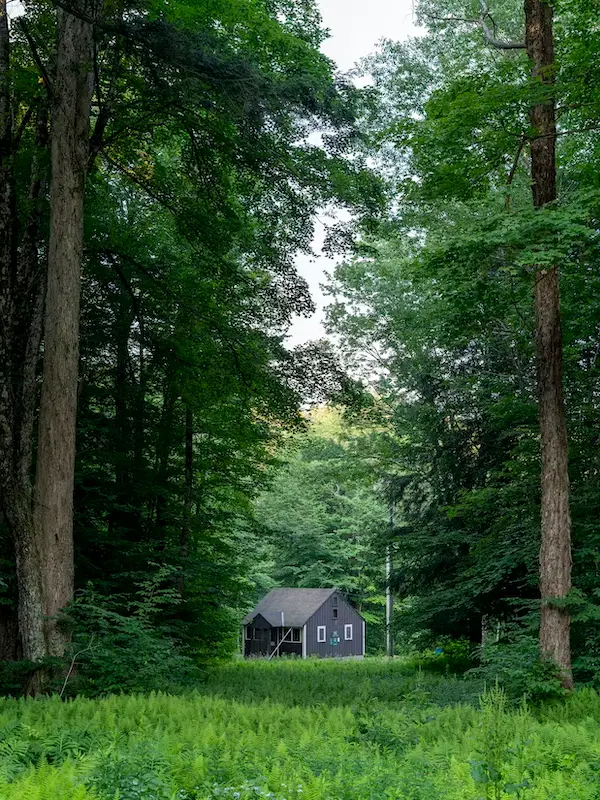
Cabin tents offer a unique camping experience with their roomy interiors, vertical walls, and home-like feel. They are an excellent choice for families or groups who value comfort and space during their outdoor adventures. While they do have a few potential drawbacks, such as wind resistance and weight, many campers find that the benefits far outweigh these challenges.
Instant cabin tents, with their quick setup times, offer an added level of convenience, making them a popular choice among many campers. However, it’s important to consider your specific needs and preferences when choosing a tent. Whether you opt for a traditional cabin tent, an instant model, or a different type of tent altogether, the most important thing is that it suits your camping style and enhances your outdoor experience. If you’re a tall individual, you might find our guide to the best camping tents for tall people particularly helpful.
We hope this guide has provided you with valuable insights into cabin tents and will help you make an informed decision. Happy camping!
Frequently Asked Questions
What is a cabin tent?
A cabin tent is a type of camping tent designed to resemble a cabin, with near-vertical walls and a high ceiling. This design provides a spacious interior and more headroom compared to other types of tents.
What are the benefits of a cabin tent?
Cabin tents offer several benefits, including spaciousness, comfort, room dividers for privacy, and vertical walls for maximum space usage. Instant cabin tents also offer quick and easy setups.
What are the drawbacks of a cabin tent?
Some potential drawbacks of cabin tents include less wind resistance due to their high profile, heavier weight, and potential durability issues. Instant cabin tents, while convenient, can be more expensive
What is an instant cabin tent?
An instant cabin tent is a type of cabin tent designed for quick and easy setup. They come with pre-attached poles and a simplified assembly process, allowing you to set up your tent in a matter of minutes.
How do I choose the right cabin tent?
When choosing a cabin tent, consider factors such as size, material, ease of setup, features, and price. It’s also important to consider your specific camping needs and conditions.

